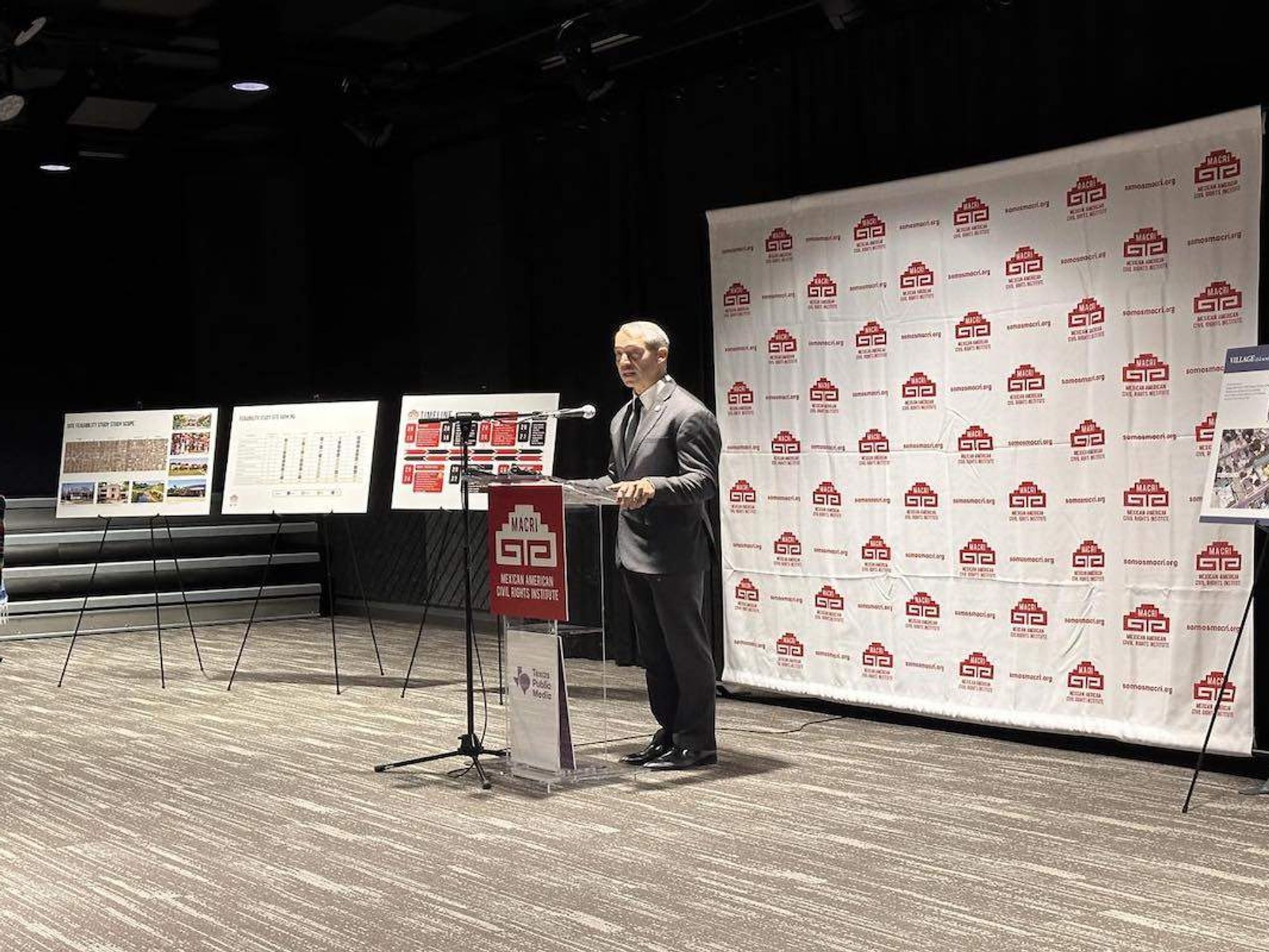Paying tribute to history
Nation's first Mexican American Civil Rights museum eyes San Antonio

San Antonio Mayor Ron Nirenberg speaks at a September 13 Mexican American Civil Rights Institute event.
A San Antonio organization is looking at five locations in an effort to build the nation's first Mexican American Civil Rights Museum.
Officials with the Mexican American Civil Rights Institute met September 13 to unveil results of a site feasibility study toward developing a permanent museum, which will pay tribute to generations of Mexican Americans who advanced civil rights.
Local leaders such as Mayor Ron Nirenberg and U.S. Rep. Joaquin Castro gathered at the MACRI event to check out the potential sites, all of which are west of downtown.
MACRI officials and other speakers said San Antonio’s West Side has been historically Mexican American. They added, given San Antonio’s Mexican-American majority population and the city having played a key role in the advancement of Mexican-Americans’ civil rights, it makes sense to locate the museum where so much history has been made over generations.
“We kept coming back to this West Side corridor along Commerce and Buena Vista streets…all the way east where we’re sitting now, which is the Historic Mexican downtown,” said Nathan Perez, architect for Ford Powell and Carson Architects.
Regardless of location, MACRI officials hope to build a 10,000- to 15,000-square-foot museum. They may purchase and renovate an existing building or construct something new.
MACRI officials said a final museum site will be chosen by spring 2025; then they'll follow up with buying the property, building designs, raising funds for the initiative, construction, and programming.
Guest speakers invited community members to help financially contribute to the museum project, and offer input on what type of programming could be provided at the museum.
Castro said a Mexican American Civil Rights Museum can be crucial in showing how Mexican Americans have proudly and positively contributed to American society, and to the fight for social justice, equity and voting rights.
“If people don’t understand your contributions, they only see your deficits,” Castro said. “They only understand the negatives and you’re defined not by your contributions and your positives, but by your stereotypes.”
